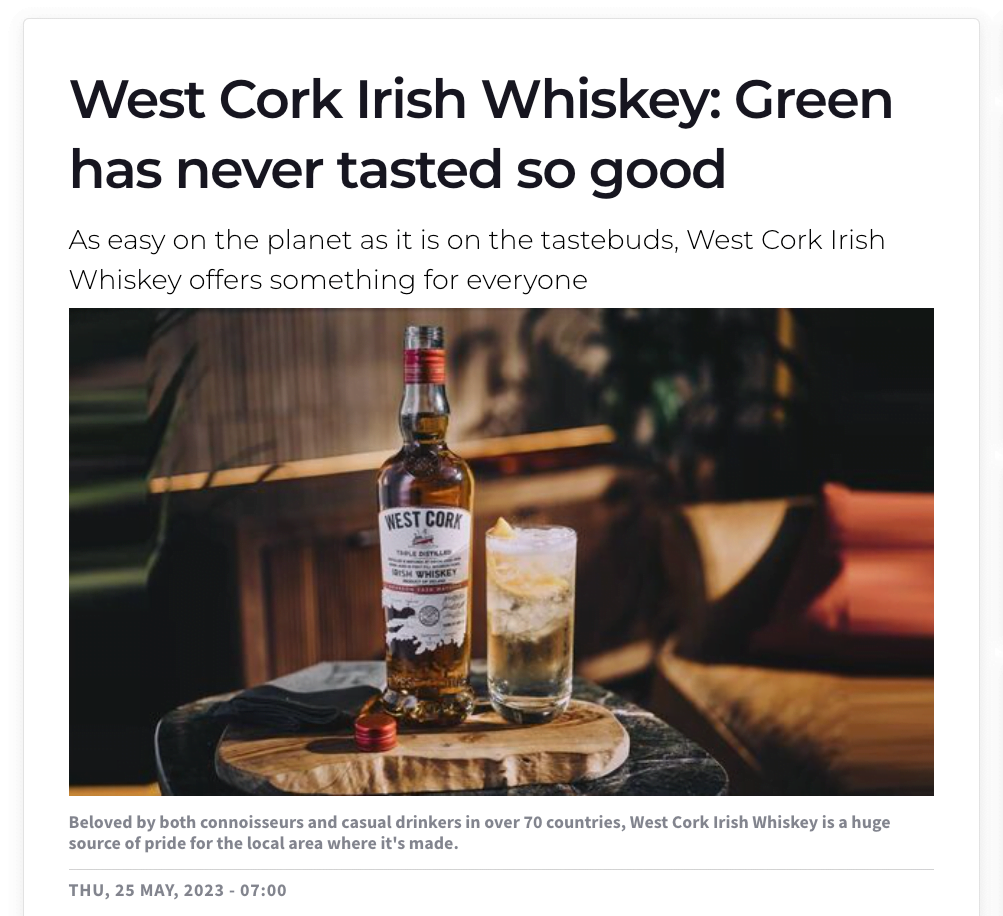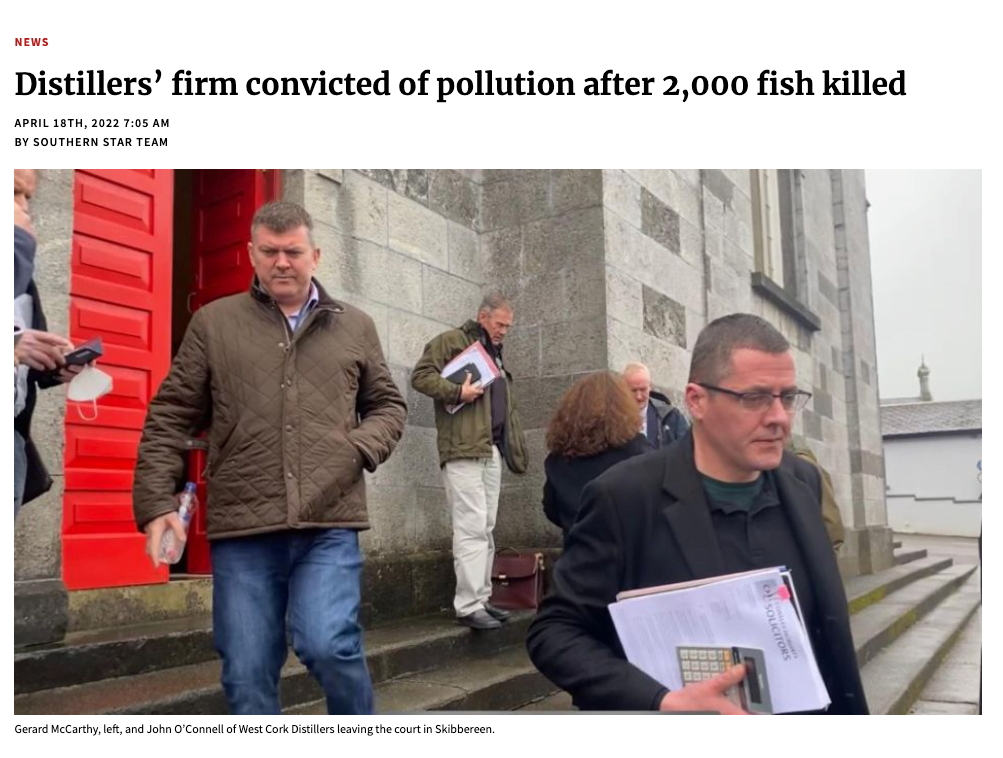Menu
An article appeared in the Irish Examiner in late May that, on the surface, looked very plausible. It had the format of an editorial or news piece, and a reader could be forgiven for missing the "Sponsored" label above the piece and in the byline.
The feature extolled the environmental virtues of West Cork Irish Whiskey -- the signature brand of West Cork Distillers -- claiming that "green has never tasted so good", and proclaiming it to be "...as easy on the planet as it is on the tastebuds."
Anyone who knows West Cork Distillers, their approach to environmental stewardship and their track record and reputation in relation to the environment would instantly recognise this article as the paid-for greenwashing that it is. But how many readers are deceived by sponsored content like this?


Sponsored content is a normal part of both traditional and online media. We're all familiar with the "Brought to you by..." intro ads on some of our favourite TV shows, and sponsored articles and advertorials have been part of the print media landscape practically since its inception.
There's nothing intrinsically wrong with sponsored content. At its best it's a win-win -- it helps media platforms fund better content, and helps business associate their brand with such content. Paying for space to promote your brand, product or service on your media platform of choice is perfectly fine. It's just another form of advertising. As long as the sponsorship/promotional element is made very clear up-front, and the content is subject to the same rigorous editorial standards as other content on the site, there's no issue.
Where things get a bit murkier is when unscrupulous advertisers are allowed to harness the reputation and reach of authoritative media platforms, like the Irish Examiner, to push favourable yet patently untrue narratives in a blatant attempt to influence readers and falsely bolster their brand.
That's exactly what happened here.
Firstly, you'd expect a respected media platform like The Irish Examiner to have checks and balances in place -- some form of quality control to ensure that sponsored content shared by its advertisers meets the threshold of quality and accuracy readers of a leading national newspaper might expect. It's a shame that the advertising team at the examiner felt it was OK to let those standards slide in this case.
Secondly, the fact that West Cork Distillers is prepared to publish such patently false claims in a national newspaper speaks volumes of the morals and ethics behind the business itself. Once again, the public-facing narrative of West Cork Distillers tells one story, while behind the scenes, the actions of the company, and the way they do business, spins a very different yarn.
Which story do you believe: the one West Cork Distillers is paying to tell you -- or the one writ large by the way the company behaves?
